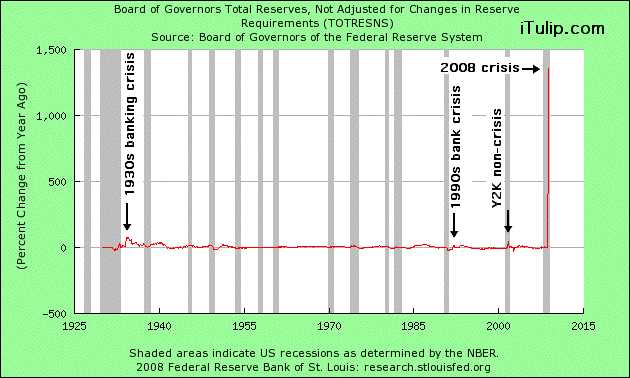A post by Karl Denninger on the Market Ticker blog today http://market-ticker.denninger.net/a...Flat-Spin.html points out the M, the M1 money multiplier, has fallen below one according to Federal Reserve data. His take on the consequences is that it is not just a symptom of deflation, but a possible cause of further unrestrained deflation should the fed continue creating money.
I'd like to hear some discussion of this, particularly the idea that more money creation becomes deflationary. I can understand the concept mathematically, but not on a practical level. The article makes no attempt to explain it further because "most readers will have their eyes glaze over." Usually when someone does this it is because he himself does not fully understand the concept. Neither do I.
Says Denninger--The problem with an M1 multiplier below one is that the effect of printing money is of course multiplied by the velocity. That is, if you print up $10 into the economy the impact it has on economic activity depends on how many times that $10 circulates in a given amount of time. The more it circulates the higher the impact and the more your efforts do for the economy.
The bad news is that when the multiplier is less than one the more money you spew into the economy the worse the impact, as you get less for each additional dollar.
The bad news is that when the multiplier is less than one the more money you spew into the economy the worse the impact, as you get less for each additional dollar.

Comment